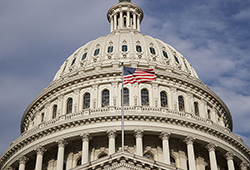 Under Section 11403 of The Inflation Reduction Act, effective starting on Monday, October 3, 2022, and for the next five years, Medicare Part B will pay healthcare providers an 8% add-on fee for qualifying biosimilars, replacing the previous 6% markup. The add-on fee applies to qualifying biosimilars whose average sales price (ASP), calculated based on manufacturers’ sales to all U.S. purchasers minus manufacturer rebates, discounts, and price concessions (with certain exceptions), is not more than the price of the associated reference biological product.
Under Section 11403 of The Inflation Reduction Act, effective starting on Monday, October 3, 2022, and for the next five years, Medicare Part B will pay healthcare providers an 8% add-on fee for qualifying biosimilars, replacing the previous 6% markup. The add-on fee applies to qualifying biosimilars whose average sales price (ASP), calculated based on manufacturers’ sales to all U.S. purchasers minus manufacturer rebates, discounts, and price concessions (with certain exceptions), is not more than the price of the associated reference biological product.
According to an October 3, 2022 HHS press release, Section 11403 “encourages the creation and utilization of biosimilars to compete with original biologic products and incentivizes innovation for less costly access to these important therapies in the United States.” In the press release, HHS Secretary Xavier Becerra issued the following statement on the implementation of the Medicare Part B payment changes: “Today’s action marks a critical step toward reducing health care costs for American families and increasing competition. We’re moving full-speed ahead on Inflation Reduction Act implementation to deliver results for millions of Americans.” Centers for Medicare & Medicaid Services (CMS) Administrator Chiquita Brooks-LaSure added: “CMS is swiftly implementing the historic Inflation Reduction Act to make the new law and the benefits it provides a reality for the people we serve. The temporary Medicare Part B payment increase for qualifying biosimilars that is now in effect will foster competition in the drug marketplace for conditions such as diabetes, cancer, and immune disorders, and will improve access to these life-saving medicines that help keep people with Medicare healthy.”
Relatedly, on September 19, 2022, Rep. Mariannette Miller-Meeks (R-IA) introduced The Biologics Competition Act of 2022 (H.R. 8877), a bill that aims to evaluate and address “the extent to which the substitution of interchangeable biological products may be impeded by differences between the system for determining a biological product to be interchangeable and the system for assigning therapeutic equivalence ratings to drugs.” The bill received bipartisan support from Reps. Greg Murphy (R-North Carolina), Nanette Barragán (D-California), and Ann Kuster (D-New Hampshire), and has been referred to the House Committee on Energy and Commerce.
If passed, the bill would require HHS to complete a study to “evaluate the extent to which the substitution of interchangeable biological products licensed under section 351 of the Public Health Service Act (42 U.S.C. 262) may be impeded by differences between the system for determining a biological product to be interchangeable under section 351(k)(4) of such Act (42 U.S.C. 262(k)(4)) and the system for assigning therapeutic equivalence ratings to drugs approved under section 505 of the Federal Food, Drug, and Cosmetic Act (21 U.S.C. 355),” submit a report to Congress on the results of the study, and update the Purple Book to implement changes that HHS “deems necessary to harmonize the approach for communicating the substitutability of interchangeable biological products.”
